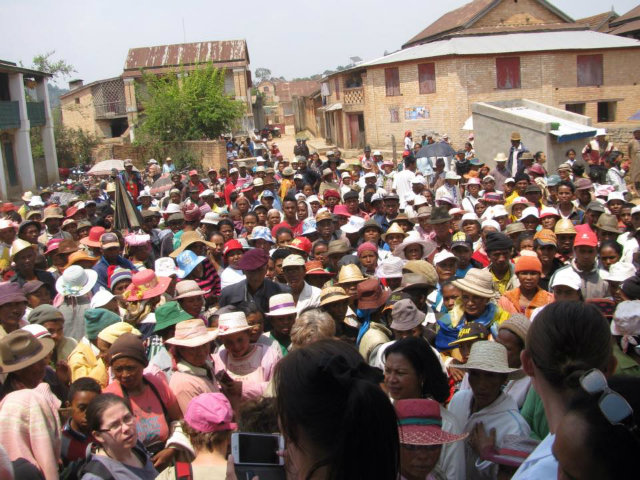And they came, bringing to [Jesus] a paralytic carried by four men. And when they could not get near him because of the crowd, they removed the roof above him, and when they had made an opening, they let down the bed on which the paralytic lay. And when Jesus saw their faith, he said to the paralytic, “Son, your sins are forgiven.” Now some of the scribes were sitting there, questioning in their hearts, “Why does this man speak like that? He is blaspheming! Who can forgive sins but God alone?” And immediately Jesus, perceiving in his spirit that they thus questioned within themselves, said to them, “Why do you question these things in your hearts? Which is easier, to say to the paralytic, ‘Your sins are forgiven,’ or to say, ‘Rise, take up your bed and walk’? But that you may know that the Son of Man has authority on earth to forgive sins”—he said to the paralytic— “I say to you, rise, pick up your bed, and go home.” And he rose and immediately picked up his bed and went out before them all, so that they were all amazed and glorified God, saying, “We never saw anything like this!” Mark 2:3-12
Recently, an LCMS Mercy Medical Team was serving in Madagascar, holding clinic in a very rural Lutheran church. There was no electricity, and the church was cool and dim. I was sitting in our pharmacy—a secluded area in the back of the church. We had been up since dawn, packing up our supplies and travelling a long distance to serve our brothers and sisters in this remote location. I was very tired, and the steady hum of conversation between the doctors and nurses was soothing, making it tempting to drift off for a few minutes.
Suddenly, the conversation stopped, and there was a commotion near the front of the church, where the line of patients stretched out through the door and far into the surrounding field. Entering the church were two men, sweating and struggling to carry a third into the building. These two men heard that there were doctors in the village, and ran to their friend’s house. He was bedridden—so sick that he could not rise. The two were so determined to get care for their friend that they picked him up and carried him the great distance to our clinic.
I was reminded of the above passages from the book of Mark. Those friends, too, had come seeking healing for their friend.
Our doctors and nurses couldn’t command the man to rise and walk. They certainly couldn’t forgive his sins. We were, however, able to provide physical relief, and the pastors from the Malagasy Lutheran Church were there to pray with him and minister to him long after our team left. The presence of our team provided the means by which these three men, and their families, could be introduced to God.
That’s what LCMS Mercy Medical Teams is all about. While the physical healing and relief that we provide is needed and necessary, we are only there for a short time. We come, we serve, and we return home to share our stories. This is why we work alongside of our local church partners—our Lutheran brothers and sisters who will be present for our patients long after the team leaves. A mercy medical team lasts far longer than the week or two that we are there. After we leave, there is follow-up medical care available for those who need it most. Often, the local pastor provides transportation for patients. There is follow-up by the local church, whose members visit and encourage patients in the community. Finally, there is follow-up through prayer. Most team members remember their patients in prayer long after the trip is over—many times for months or years.
I haven’t yet heard how the man who was carried into our clinic is doing. I am confident that he is receiving the spiritual and physical care that he needs. I hope that he and his friends, like those in Capernaum, are praising and glorifying God for the things that happened that day, and saying, “We never saw anything like this!”
